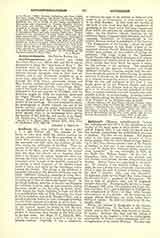

Antidicomarianites. —An Eastern sect which flourished about A.D. 200 to 400, and which was so designated as being the “opponents of Mary”. The Ebionites were the first who maintained that Our Lord was merely the son of Joseph and Mary. This doctrine became repugnant even to their own adherents, and it was afterwards modified so as to teach that, although Our Lord was born of Mary through the Holy Ghost, afterwards Joseph and Mary lived in wedlock and had many other children. The sect denied the formula “ever-Virgin Mary” used in the Greek and Roman Liturgies. The earliest reference to this sect appears in Tertullian, and the doctrines taught by them are expressly mentioned by Origen (Homilia in Lucam, III, 940). Certain Arians, Eudocius and Eunomius, were great supporters of the teaching. The sect attained its greatest development in Arabia towards the end of the fourth century, and the name Antidicomarianites was specifically applied to it by St. Epiphanius who wrote against them in an interesting letter giving the history of the doctrine and proofs of its falsity (St. Epiphanius, Contra Haeres., lxxviii, 1033 sqq.).
ANDREW J. SHIPMAN

